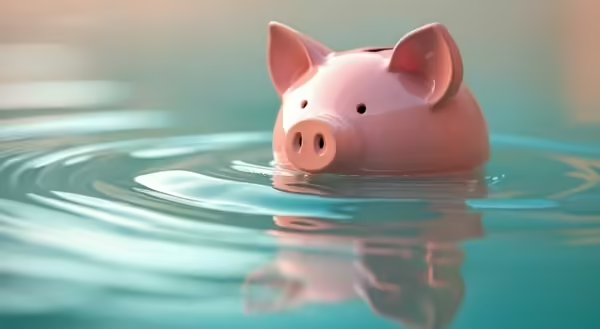
Are you anticipating a tax refund this year? If you are expecting a refund, do you have a plan on how you will spend or save this money? An immediate response to receiving money may be thoughts of something you want to buy. Before making the decision to spend, dedicate some time to considering some alternative options of what this money could be used toward. Think about the short-term and long-term impacts of your decisions. According to the recent Survey of Household Economics and Decisionmaking (SHED) Survey, 17% of adults reported that they did not pay all their bills in full the month prior to the survey and 65% said that increases in prices have made their financial situation worse. Take time to make the best choice to improve your financial wellness and work on your personal financial self-control. Plan your spending and consider an emergency savings account, paying down debt, or exploring savings and investing opportunities.
Planned spending
Some may see a tax refund as an opportunity to purchase something otherwise out of reach. When trying to spend within your means or spend less than you earn, some purchases may be challenging to acquire without taking on some form of debt or payment plan. When receiving a lump sum payment, such as a tax refund, it may be tempting to spend this money without feeling guilty for spending beyond your typical income. Before making a large or even several small purchases, consider other alternative options that may bring long-term financial benefits.
Emergency savings account
Have you experienced unexpected expenses over the last year that caused financial challenges for your household? Did you need to take on debt or utilize a payment plan because you did not have enough money in the last year? Setting up an emergency savings account can make times of hardship easier when you have money available in times of need. The Illinois Department of Central Management Services suggests saving three to six months' worth of expenses in an emergency fund.
Pay down debt
Do you have debt weighing you down financially? Debt is linked to stress and can negatively impact your well-being. If you have some debt being carried into this year, consider applying your tax refund toward paying down debt. If you have multiple debts and are not sure which one to pay down first, there are financial tools that can help you find the best strategy for your situation. Learn more about Debt Repaying Strategies from a past article. Create a clear spending plan for the upcoming year to see if you could use this money to prevent borrowing money to meet your needs. Borrowing money can be costly, so paying down debt can improve your financial wellness.
Explore saving and investing options
If you feel financially comfortable, receiving a tax refund may be an opportunity to focus on building wealth through saving or investing. Depending on your risk tolerance, many saving and investment options are available. Explore the basic low-risk saving opportunities first, such as a basic savings account with your local bank, a certificate of deposit, or a high-yield savings account (typically available online). If you are ready to learn more about possible investing opportunities, you can look for a financial professional to meet your needs or you can set up an investing account on your own.
Spending your tax refund is okay! Just consider all the options you can take with this money before committing to anything. Exercise financial self-control and consider both short-term and long-term benefits of your financial decisions. Make the most of your tax refund this year.
References
Board of Governors of the Federal Reserve System. (2024, May 21). Economic Well-Being of U.S. Households in 2023.
Illinois Department of Central Management Services. (2024, February). Emergency fund. Illinois.gov.
Mahlandt, J. (2024, May 8). Debt repaying strategies: How do you decide? Finding Financial Balance - University of Illinois Extension.
Meet the Author
Jamie Mahlandt is a Financial Educator for Bond, Clinton, Jefferson, Marion, and Washington counties in Southern Illinois. She provides financial education to the local community with an emphasis on financial literacy and financial well-being.
Subscribe
Subscribe to blog updates HERE.